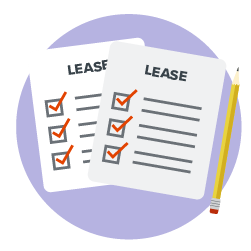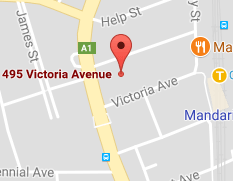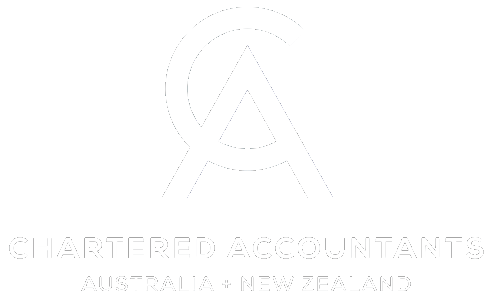Welcome to our March 2020 edition of the StewartBrown newsletter. We hope to keep you informed of the important tax developments and issues affecting taxpayers and businesses in Australia today.
LIMITING TAX DEDUCTIONS FOR VACANT LAND
In the 2018–19 Federal Budget the Government announced that it would limit deductions for expenses associated with holding vacant land. Provisions to give effect to these changes are contained in Treasury Laws Amendment (2019 Tax Integrity and Other Measures No.1) Act 2019 which received royal assent on 28 October 2019.
The changes apply to limit the tax deductions that can be claimed for holding vacant land incurred on or after 1 July 2019, even if the land was held before that date.
Tax deductions for holding costs incurred on vacant land are not impacted by these changes if:
- The land is held by:
- corporate tax entities, superannuation plans (other than self-managed super funds), managed investment trusts or public unit trusts; or
- unit trusts or partnerships of which all the members are entities listed above.
- The land is used in carrying on a business by:
- you
- your affiliates
- an affiliate of you
- your spouse or child (under 18) or
- an entity connected with you
- You or an entity listed above is carrying on a business of primary production and the land is leased or hired to another entity
- The land is made available at arm's length to a business for use in the business
- A substantial and permanent structure was on the land but an exceptional circumstance occurred that resulted in the land becoming vacant.

For the purposes of determining whether tax deductions for holding costs are denied, land is considered vacant if:
- at the time the expense was incurred, the land did not contain a substantial and permanent structure; or
- the land did contain a substantial and permanent structure that is residential premises, the premises is not lawfully able to be occupied, or it is not rented out or made available for rent.
Prior to these changes the income tax law allowed those who hold vacant land to claim a tax deduction for the costs of holding the land if it is held for income producing purposes, or if they are carrying on a business to produce income. This new law will deny land owners a tax deduction for the costs of holding vacant land in certain circumstances.
Holding costs include ongoing borrowing costs, interest incurred on loans to acquire the land, land taxes, council rates and maintenance costs.
We always recommend you consult with your StewartBrown Manager or Partner about changes in Tax Law and would particularly recommend so where you own vacant land. If applicable to you, these changes will impact your 2020 tax return.
REMINDER ON SUPER GUARANTEE RATES
This is just a reminder (for those who like to plan ahead!) that the superannuation guarantee rate payable by employers will increase to 12% (up from the current 9.5%) in stages as follows:
| Period | Superannuation Guarantee rate (%) |
|---|---|
| 1 July 2014 – 30 June 2021 | 9.5 |
| 1 July 2021 – 30 June 2022 | 10.0 |
| 1 July 2022 – 30 June 2023 | 10.5 |
| 1 July 2023 – 30 June 2024 | 11.0 |
| 1 July 2024 – 30 June 2025 | 11.5 |
| From 1 July 2025 | 12.0 |
NEW ACCOUNTING STANDARD
Does your business lease premises, motor vehicles or equipment? Changes to the accounting for leases will apply to entities that prepare financial statements in accordance with Australian Accounting Standards. Whilst non-reporting entities, being the majority of our small to medium business clients, are not required to complete comprehensive financial statements in accordance with all accounting standards, these changes may still have an impact where stakeholders such as banks put in place conditions regarding application of these standards.
With the introduction of the new accounting standard “AASB 16 Leases”, lessees are now required to account for the assets and liabilities that arise from operating leases, changing the balance sheet forever.
The standard became effective for financial periods starting on or after 1 January, 2019. This means that for most companies the first year that this standard applies to will be for the year ending 30 June 2020.

No distinction between finance and operating leases
AASB 16 removes any distinction between finance leases and operating leases, so that lessees will now have to capitalise all right-to-use assets and liabilities arising from the majority of operating leases. Short-term leases or low value assets such as laptops or phones are exempt from this requirement.
This new Standard may also force you to consider revising bank covenants such as Debt/Equity and times interest returned ratios as they may be impacted by this change to the balance sheet.
These changes may trigger additional reporting and audit requirements where previously there were none. Some Pty Limited companies may now be pushed into the large category triggering an annual audit and lodgement of accounts with ASIC each year. A propriety company is defined as large if it satisfies at least two of the following tests:
- Consolidated revenue of the company and the entities it controls is $50m or more
- The value of the consolidated gross assets at the end of the financial year of the company and entities it controls is $25m or more and
- The company and any entity it controls has 100 or more employees at the end of the financial year.
So where operating leases were previously not taken into account on the balance sheet, but now are under this new standard and the value of assets on that balance sheet is consequently enlarged by the value of those leases, a company my trigger the asset test above and possibly be classified as a large propriety company.
If this standard applies to your company, present value calculations of all leases will need to be calculated and brought to account as assets. This represents a major change in accounting for assets in Australia so please speak with your StewartBrown Manager or Partner to assist you with understanding how and/or whether this standard will affect your business and its reporting and audit obligations.



